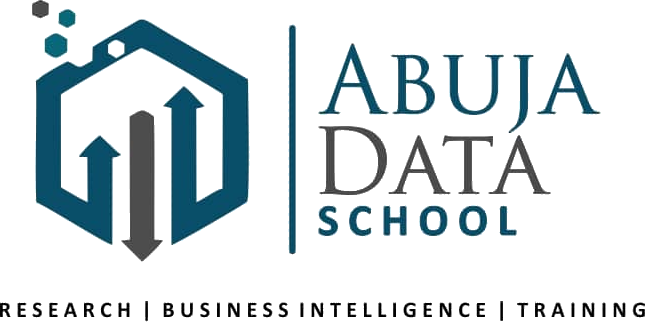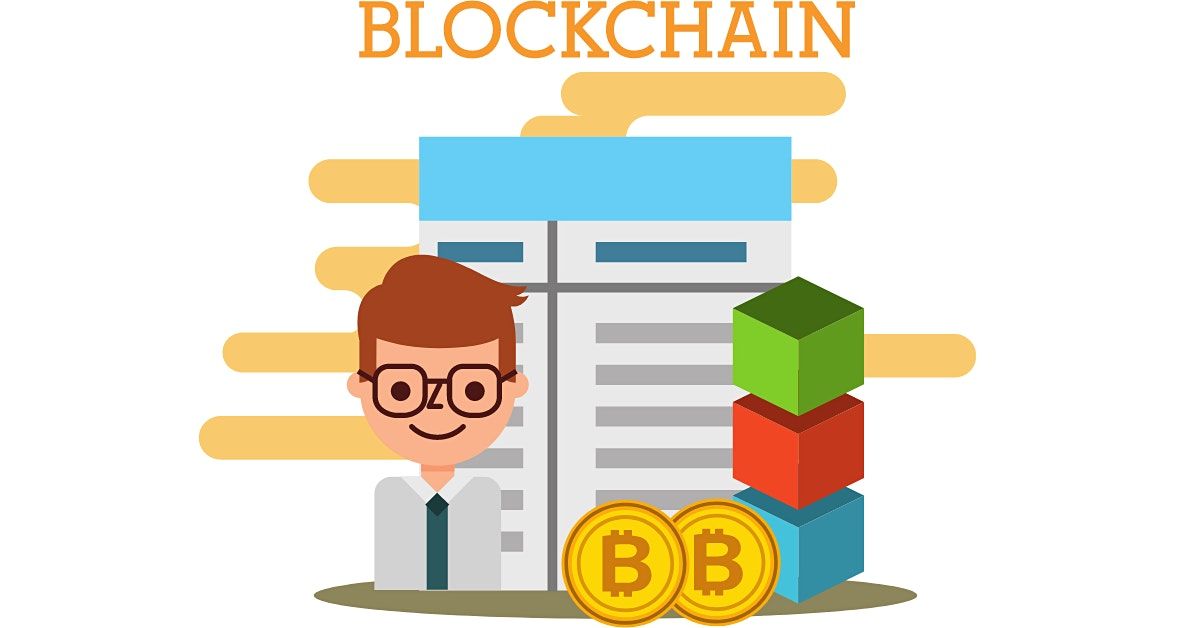Finding it difficult to grasp the concept of Blockchain and Cryptocurrency? Abuja Data School got you covered through the Blockchain and Cryptocurrency training organized in Abuja Nigeria.
Let’s take a quick trip to the history of money and how it progressed in life with generations in what is called “The Evolution of Money”. Over the years, we have seen money take different forms from trade-by-barter to seashells, cowries and pebbles to invoices to paper money to electronic money (ATM card) to digital currency (cryptocurrency). Fortunately, the trend has evolved to digital currency where transactions are cryptographically generated and encrypted.
Does the term “Cryptography” marvel you? Well, it simply means writing in codes or securing information using code form. Encryption is the process of concealing a message with an algorithmic process. This brings us to an era where currencies are printed and minted by the programming of codes.
WHAT IS BLOCKCHAIN AND CRYPTOCURRENCY
Blockchain is a technology that helps people contribute to the internet from different parts of the world and yet still make this information accessible to anyone and everyone in a system known as “Decentralized Ledger Technology (DLT)”. In short, it is an open source technology that powers the internet also likened to a database that is shared to every participant – accessible to all.
Blockchain as the name implies is usually called a “block” of “chains”. Notice it is a combination of two words. It is called so because it defines the basic process in blockchain starting from the genesis block which is the first block of every chain and connects subsequent blocks. At Abuja Data School, this process will be dealt thoroughly through the coding and non-coding angles. A block is likened to a box of transactions or a page of records in a book which when complete moves to the next by solving difficult tasks before the start of every new level. A node is a participant or server which verifies the block of transactions. Hash is a mathematical function that generates numbers verifiable to make a transaction valid. A block contains the hash of the previous transaction, time stamp and hash value for the nest transaction validated by a node. The acronym “NONCE” also called “number only used once” as the name implies is a unique number added to the hash to solve a difficulty in a block which when solved, the node miner is rewarded.

Is Bitcoin the same as Blockchain?
Blockchain Technology is vast and has various aspects which Cryptocurrency is one of. Blockchain is a technology with many products on it referred to as “Use cases”. These use cases exist in real time and digitally. They include, healthcare, government, financial services, supply chain /logistics management, cybersecurity, Internet of Things(IOT), smart contracts, Non-Fungible Tokens (NFTs) and cryptocurrencies. Blockchain is the technology on which these work. Therefore, bitcoin is made possible by the type of blockchain technology it runs on which is cryptocurrency. The kind of blockchain set up determines the function or use case on which it will be performed. Cryptocurrency is a kind of blockchain and Bitcoin is an example of a Cryptocurrency.
Bitcoin was created in the year 2008 by a person or group known as Satoshi Nakamoto. After which it was introduced on 3rd January 2009. The first bitcoin transaction was in 2010 by Laszlo Hanyecz who bought two pizzas with 10,000 Bitcoins worth $40 then.
As earlier introduced, money is believed to have trends which is called Evolution. Money evolving from one phase to another e.g. from trade by barter to shells to cowries to invoice/receipt to paper money (fiat) to electronic money (ATM cards/gift cards) to DIGITAL MONEY (Cryptocurrency).
Basically, Cryptocurrency is the novel type of currency generated from codes. Cryptocurrency is a digital currency enabled by the decentralized system of blockchain technology using cryptography to record and validate transactions. It is also called digital currency because it does not necessarily have tangible properties like the other types of money which we can feel and touch before a value is attached to it. It also qualifies for a currency because it serves as a unit of account, store of value and medium of exchange therefore, satisfying the basic functions of money.
Examples of Cryptocurrencies are Bitcoin, Ethereum, Ripple, Litecoin, Solana, Binance etc.
It is expected in the tokenomics of coins and tokens that they should have solution(s) to proffer to realistic problems in what is known as “use case”, hence, the various kinds of coins/tokens according to their function. They are utility token, governance token, security token and stable token. A token is usually the native currency attached to or produced by a crypto project.
These are called Coins and Tokens. Coins are the likes of Bitcoin which have their own customized technology while Tokens run on other existing technologies. Similar blockchain ecosystems which exist are Solana, Binance, Polkadot, Tron, Phantom and many more.
Cryptocurrency has a market where people can buy and sell the currencies they hold. They are called Exchanges. This is where you can sell your local currency (e.g. Naira, Cedi) to get Bitcoin through an exchange. Just as your local currency is kept in the custody of conventional banks that give bank accounts as an identity, Cryptocurrencies are stored in wallets with wallet addresses as identity to effect transactions.
Different things you would learn to do with crypto currency at the Blockchain and Cryptocurrency training at Abuja Data School:
- Crypto-trading, i.e. buying and selling available currencies.
- Investment in crypto-related projects for future benefits.
- Staking process to yield passive gains.
- Many more.
FEATURES OF BLOCKCHAIN
- Programmable – transactions are programmed on the blockchain. This blockchain and cryptocurrency training in Abuja will equip you with programmable skills to create a blockchain.
- Distributed – All participants share in the ledger of transactions. Simply put, everyone with permission to the blockchain will have a copy of transactions.
- Immutable – It cannot be altered if a transaction is validated except in rare cases of 50% attack rule.
- Time-stamped – It has time and transactions are recorded accordingly in the block.
- Anonymous – Participants are anonymous and have digital identity.
- Secure – Transactions are encrypted for security purposes.
- Unanimous – There has to be agreement of participants or nodes for validation of transaction.
ADVANTAGES OF BLOCKCHAIN
The advantages of blockchain are summarized under 4 basic categories which are;
- Decentralization.
- Immutability.
- Security and privacy.
- Transparency.
The blockchain and cryptocurrency training at Abuja Data School will give further tutelage on these categories and benefits embedded in each item.
DISADVANTAGES OF BLOCKCHAIN
- Costly to set up a blockchain.
- Some blockchains require too much energy consumption to function.
- Political and social threat to adopt as it disrupts centralization.
ADVANTAGES OF CRYPTOCURRENCY
- High returns on investment depending on demand and supply.
- Immediate transaction processing time.
- No individual information leakage.
- Lesser fees to transact with.
- Not bound by regions or countries.
DISADVANTAGES OF CRYPTOCURRENCY
- Market volatility.
- High risk of loss by market fluctuations.
THINGS YOU WOULD LEARN AT THE BLOCKCHAIN AND CRYPTOCURRENCY TRAINING IN ABUJA:
- History of cryptocurrency.
- How the blockchain works.
- Blockchain protocols and consensus mechanisms.
- Stable coins.
- Tokenomics.
- Ethereum Virtual Machine (EVM).
- Layer 1, 2 and other layers.
- Smart contract and Solidity programming.
- Token creation.
- Market tracking using Coinmarketcap, Coingecko, Coinratecap etc.
- Concept of Decentralized Finance (DeFi).
- GameFi features.
- Non-Fungible Token (NFT).
- Trading and crypto market strategies.
- Metaverse – the new wave.
PROGRAMMING LANGUAGES FOR DEVELOPING BLOCKCHAIN TECHNOLOGY
C++, Java, C#, JavaScript, Go, Python, Ruby, and Solidity
Not limited to what is listed here, this blockchain and cryptocurrency training in Abuja Nigeria will teach many more topics even to current trends.
Abuja Data School has made available professionals in various fields such as Finance, IT, Law, Management who will take you through the training and real applications of what you would learn.
CAREERS IN BLOCKCHAIN AND CRYPTOCURRENCY
- Data Scientist.
- Customer Success.
- Blockchain Developer.
- Crypto Trader.
- Project Manager.
- Blockchain Engineer.
- UI/UX Designer.
And many more.

